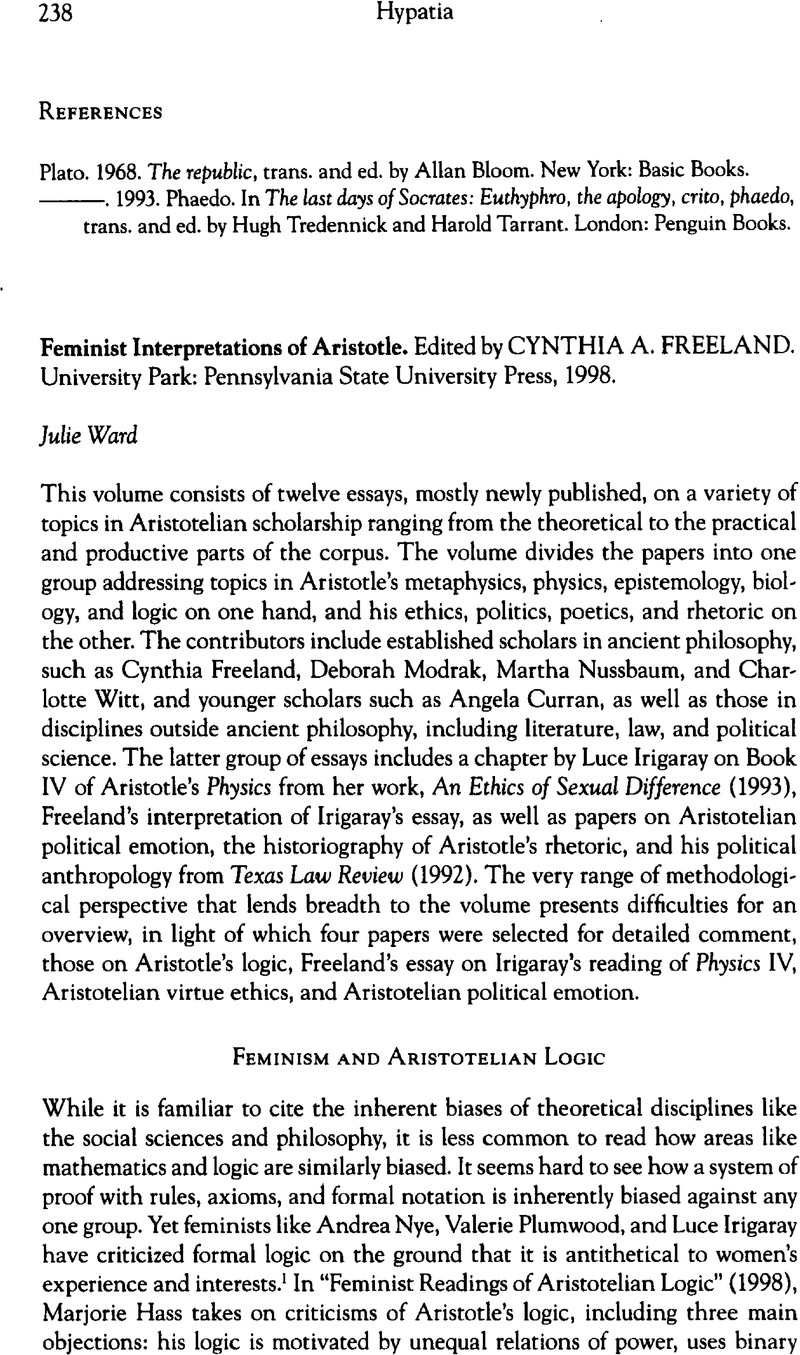No CrossRef data available.
Article contents
Feminist Interpretations of Aristotle. Cynthia A. Freeland. University Park: Pennsylvania State University Press, 1998.
Review products
Feminist Interpretations of Aristotle. Cynthia A. Freeland. University Park: Pennsylvania State University Press, 1998.
Published online by Cambridge University Press: 25 March 2020
Abstract
An abstract is not available for this content so a preview has been provided. Please use the Get access link above for information on how to access this content.

- Type
- Book Reviews
- Information
- Copyright
- Copyright © 2002 by Hypatia, Inc.
References
Achtenburg, Deborah. 1996. Aristotelian resources for feminist thinking. In Feminism and ancient philosophy, ed. Ward, Julie. London, New York: Routledge.Google Scholar
Aristotle, . 1979. Aristotle's categories and de interpretatione, trans. Ackrill, J.L.Oxford: Clarendon Press.Google Scholar
Aristotle, . 1984. The complete works of Aristotle, ed. Barnes, Jonathan. Princeton: Princeton University Press.Google Scholar
Irigaray, Luce. 1989. Is the subject of science sexed? In Feminism and science, trans. Bove, Carol, ed. Tuana, Nancy. Bloomington: Indiana University Press.Google Scholar
Irigaray, Luce. 1993. Place, interval: A reading of Aristotle, physics IV. In An ethics of sexual difference, trans. Burke, Carolyn and Gill, Gillian. Ithaca: Cornell University Press.Google Scholar
Nussbaum, Martha. 1992. Aristotle, feminism, and needs for functioning. Texas Law Review 70(March): 1019.Google Scholar
Nye, Andrea. 1990. Words of power: A feminist reading of the history of logic. New York: Routledge, 1990.Google Scholar
Plumwood, Valerie. 1993. The politics of reason: towards a feminist logic. Australasian Journal of Philosophy 71(4): 436–62.CrossRefGoogle Scholar


